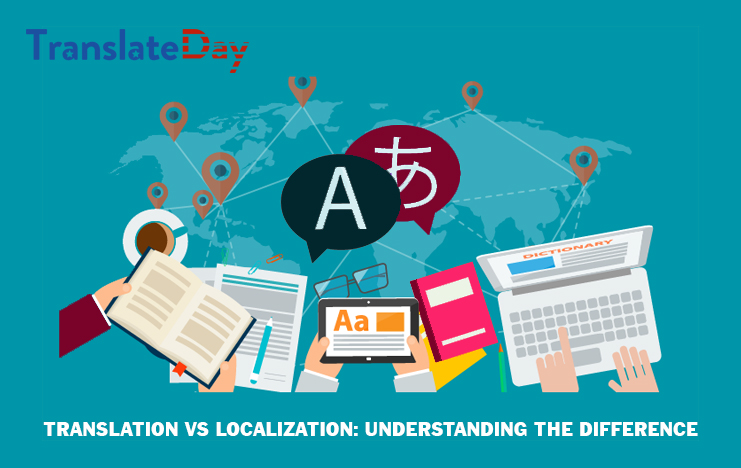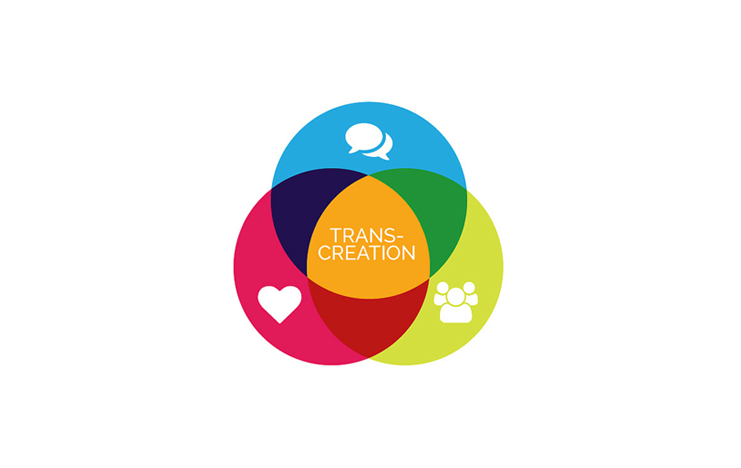Estimated reading time: 8 minutes
Translation vs Localization is one of the most frequently discussed topics in the translation industry. In the field of translation, one often hears the term localization, but not everyone really knows what it means. Both terms are important and related, yet there is a clear difference between translation vs localization. Let’s understand these concepts in detail and discover which to use, when, and why they matter for global communication.
For a detailed industry definition, refer to the Globalization and Localization Association (GALA).
Translation: The Foundation of Global Communication
Translation involves conveying the message of a spoken or written communication in another language without changing its meaning. A good translator considers not only grammar and syntax but also cultural nuances and idioms. For example, translating “beating around the bush” literally would make no sense in many languages. Effective translation requires deep understanding of both cultures to ensure the message resonates naturally.
Read Also: Translation Problems and Solutions
Localization: Going Beyond Translation
While translation focuses on converting text from one language to another, localization adapts the content for a specific region or audience. Localization ensures that text, visuals, formats, and cultural references align with local expectations. It’s what makes global brands feel local. For instance, websites, video games, or apps may require different date formats, currencies, or even layouts depending on the target market. This is the main difference between translation vs localization.
Read Also: Online Translation Tools Recommended by Translators
Localization may also be required even when translation is not. For example, English content localized for the UK and the US must consider different spellings, idioms, and cultural norms. Similarly, Spanish varies across regions—Spain, Mexico, and Argentina use different expressions. Understanding translation vs localization helps ensure content feels native everywhere it’s published.

Translation vs Localization: Which to Use and When?
The choice between translation vs localization depends on the purpose and type of content. For legal or technical documents such as birth certificates, legal contracts, or technical manuals, a precise and literal translation is essential. However, for marketing materials, product descriptions, or websites, localization adds emotional and cultural relevance to drive engagement and sales.

People buy from brands that make them feel understood. Using localization ensures your content speaks directly to your audience’s heart, not just their mind. That’s the real power of translation vs localization—turning comprehension into connection.
Localization in Globalization
Localization is crucial for global expansion. As the saying goes, “to globalize, you must localize.” Companies like McDonald’s or Netflix tailor their products and content to fit local cultures, from menu items to subtitles. This is the essence of translation vs localization—a process that makes brands both universal and local at once.
Read Also: Common Translation Mistakes

In linguistic terms, globalization means creating universal content, while localization adapts it to each market’s preferences. This balance ensures messages remain culturally appropriate and effective. Different colors, symbols, and even animals have varying meanings around the world—another reminder of why translation vs localization matters so much.
Transcreation and Translation
Transcreation takes localization even further. It’s the art of rewriting content creatively to evoke the same emotional impact as the original. Transcreation is vital for marketing and branding because it preserves brand voice and intent while connecting emotionally with local audiences. It’s the next step after translation vs localization for companies that want to inspire customers across borders.

TranslateDay specializes in certified translations and localization for global organizations. From academic transcripts to business websites, we ensure accuracy, cultural adaptation, and global consistency. Understanding translation vs localization is key to communicating effectively with every audience, everywhere.
Mastering translation vs localization ensures your global message is clear, culturally relevant, and successful across every market.





